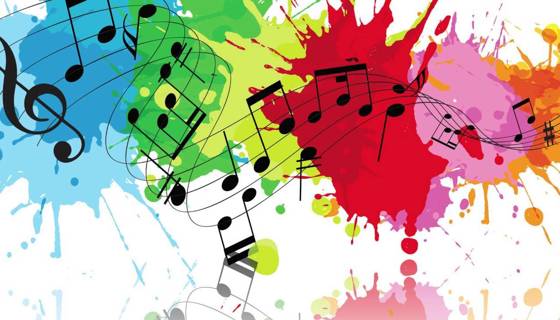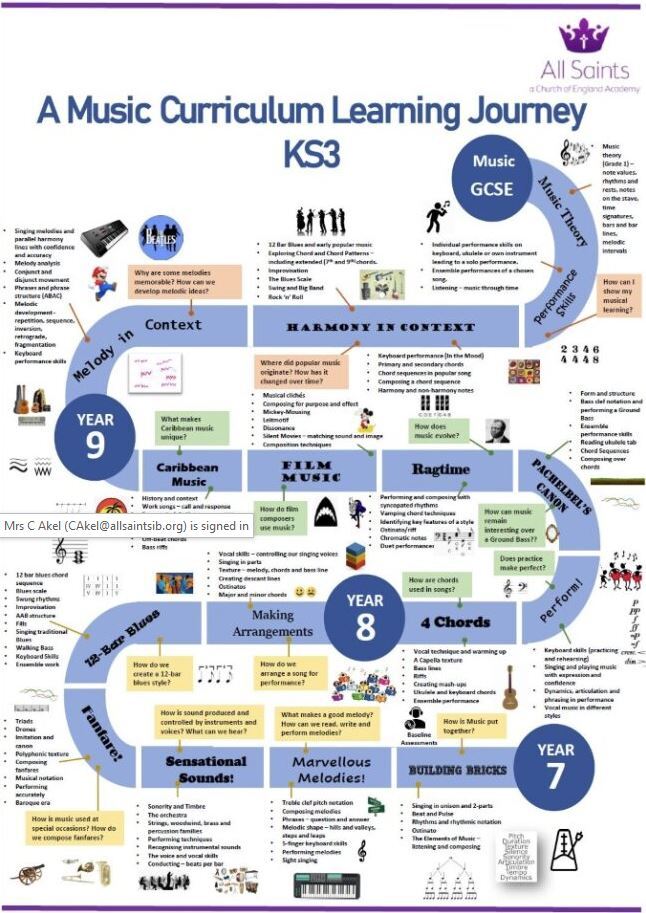- Home
- Curriculum
- Our Courses
- Music
Music
Back
“Music gives a soul to the universe, wings to the mind, flight to the imagination and life to everything." Plato
Our vision for Music at All Saints
Our curriculum focuses on improving the quality of students’ musical responses and musical understanding to promote good prospects for further study and a life-long appreciation for the art form. Music encompasses practical skills, listening skills, creative skills, self-management skills, problem-solving, and communicative skills, and the curriculum has been designed to build practical musical skills in a sequenced and fundamentally musical way by linking all musical activities to the act of making music. All students have the opportunity to take part in the extra-curricular programmes, such as Choir, and instrumental lessons to develop their instrumental/singing skills and general musicianship. The learning experiences are high quality and authentic (where possible), with clear progression routes. The curriculum strives to be inclusive, absorbing, relevant, varied, progressive and respectful – all of which are important in producing active and confident students.
Throughout our Music course students will be inspired to develop a love of music and their talent as musicians, and so increase their self-confidence, creativity and sense of achievement. As students’ progress, they will develop skills which allow them to compose and to listen with understanding to music from different times and places and in a variety of different styles.
During the Music course, students will have the opportunity to:
- perform, listen to, review and evaluate music across a range of historical periods, genres, styles and traditions, including the works of the great composers and musicians
- learn to sing and to use their voices, to create and compose music on their own and with others, have the opportunity to learn a musical instrument, use technology appropriately and have the opportunity to progress to the next level of musical excellence
- understand and explore how music is created, produced and communicated, including through the interrelated dimensions: pitch, duration, dynamics, tempo, sonority, texture, structure and appropriate musical notation
How we will achieve this
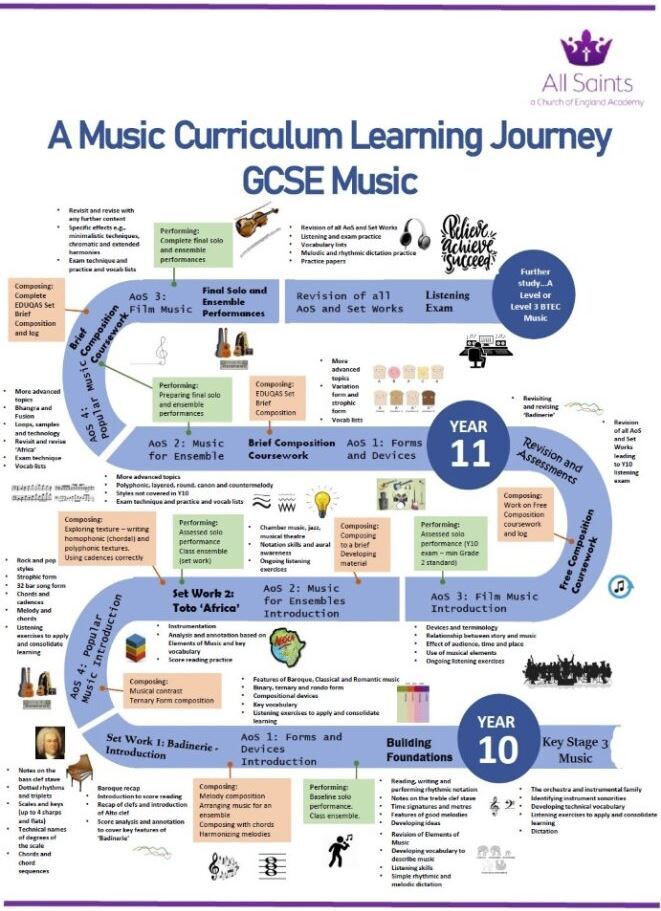
How we will assess Music
KS3
Students are assessed according to the Skills Pathway Trackers, with their target to be securely achieving their pathway criteria. Formative assessment takes place continually through music lessons as teachers work with students individually and in groups in developing their skills in performing, composing and appraising music.
Formal assessment points each term may be individual or group performances, assessed compositions or theory, knowledge or listening tests.
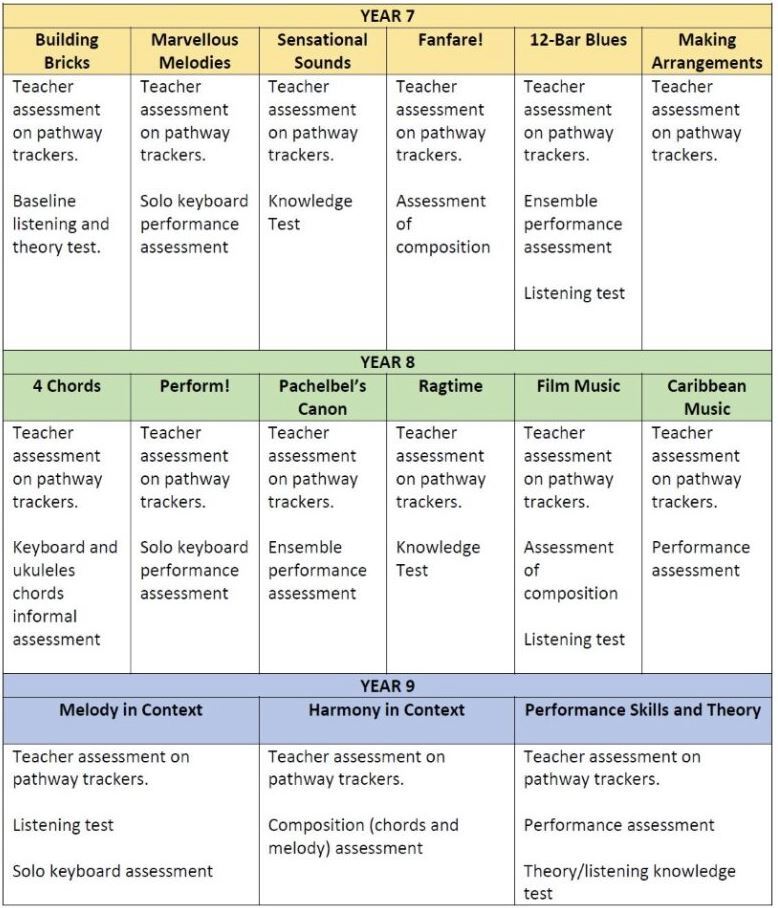
Assessment in GCSE Music
KS4 – GCSE
Students opting to sudy music at KS4 follow the Eduqas syllabus.
Formative assessment is ongoing throughout music lessons, with individual teacher support and feedback for performance and composition work. Listening and appraising tasks are a regular part of both class lessons and homework assignments.
The main summative assessment points are highlighted in the table below.
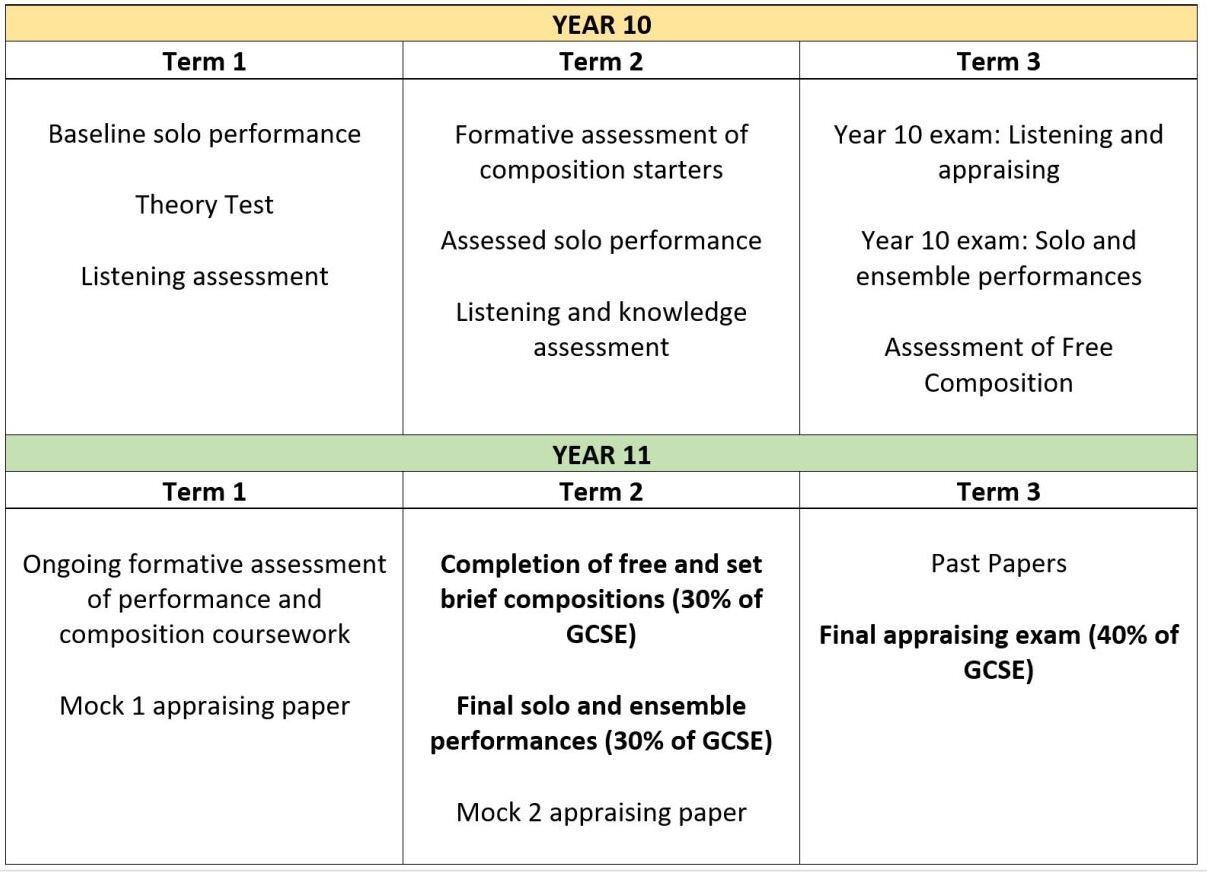
What is the impact of our work?
Christmas Performances:
Cultural Capital Opportunities
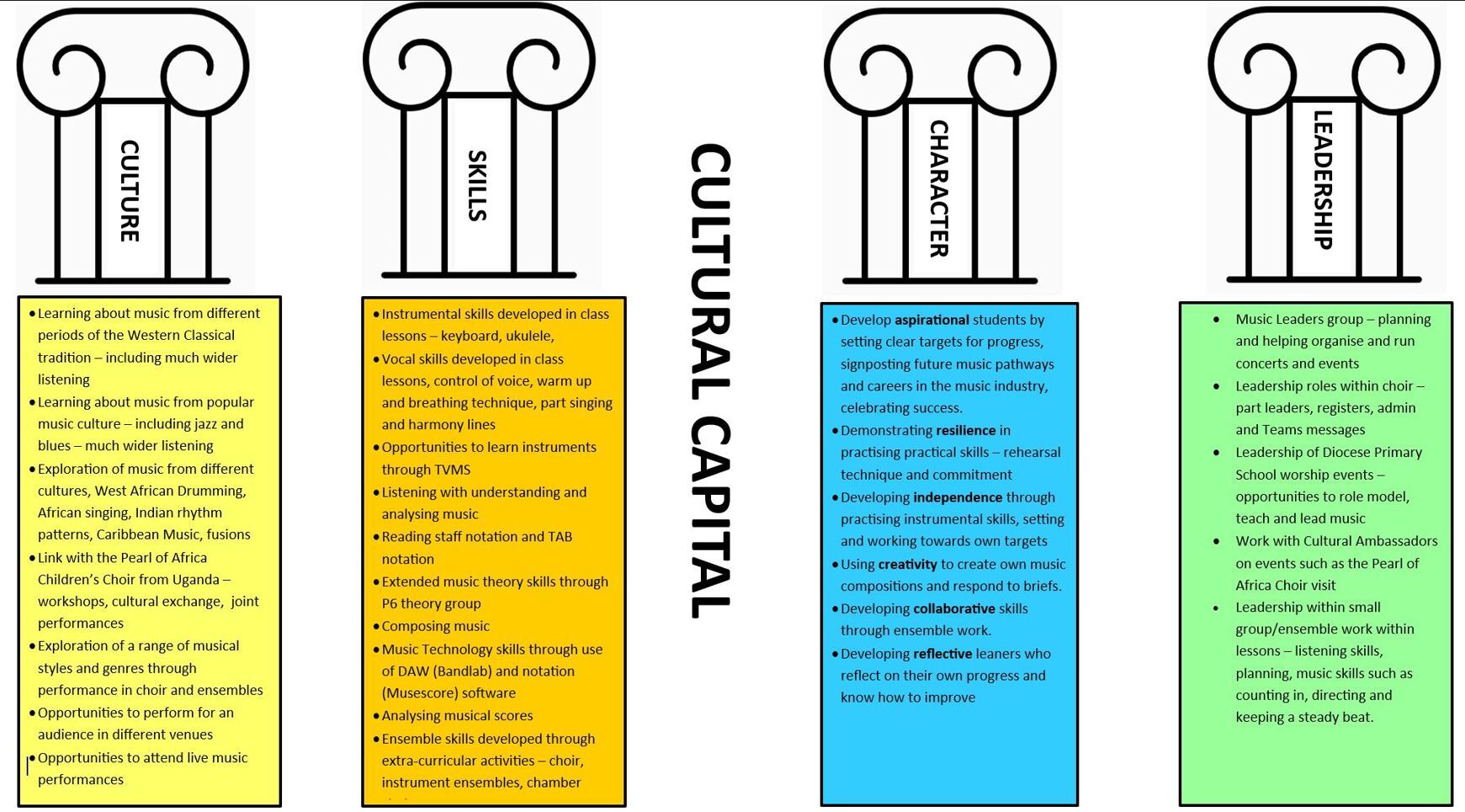
- Participation in choir, band and other extra-curricular activities
- Opportunities to perform in school concerts and shows
- Opportunities to lead music within worship
- Participation in Tees Valley Music Service groups such as TVYC and TVYO
- Representing the Academy at events such as Big Sing, Christmas Services and Diocese Services
Music Prefect

Hello, my name is Phoebe and I am the music perfect, as music prefect I hope to support Mrs Connor in the music department and help students to feel included and involved into the music side of all saints I have always loved music and do GCSE music as a option and love spending time in lessons working on things I enjoy. I hope to support younger students who have a passion for music and help others find their love for music.
How you can help your child
KS3 Knowledge Organisers
Year 7
Year 8
Year 9
KS4 Knowledge Organisers
| Subject Documents |
|---|
| School music development plan summary 2024 |

